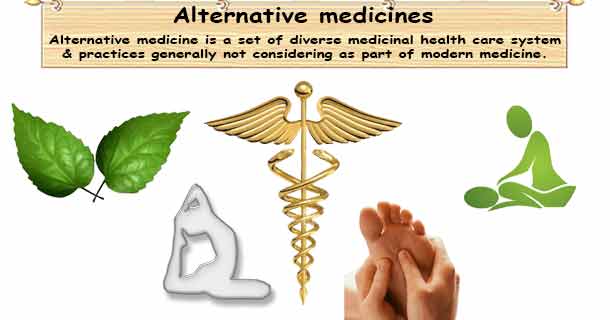
In recent years, there has been a growing interest in alternative medicines as people seek alternative approaches to their health and well-being. These unconventional practices and therapies are often seen as complementary or holistic forms of medicine, focusing on the mind, body, and spirit connection. In this blog, we will dive deeper into the world of alternative medicines, exploring their history, types, benefits, and considerations.
What are Alternative Medicines?

Alternative medicines encompass a wide range of healing practices that are not considered part of conventional Western medicine. These practices often have ancient roots, originating from different cultures and traditions around the world. Alternative medicines focus on treating the root cause of an ailment rather than just the symptoms, aiming to restore balance and harmony within the body.
Types of Alternative Medicines

There are numerous types of alternative medicines, each with its own unique approach and benefits. Some popular forms of alternative medicines include:
1. Acupuncture

Acupuncture is an ancient Chinese practice that involves inserting thin needles into specific points of the body. It is believed to balance the flow of energy, known as Qi, to promote healing and relieve pain.
2. Herbal Medicine

Herbal medicine utilizes plant-based remedies to treat various ailments. Different plants and their extracts contain therapeutic properties that can be used internally or externally as herbal teas, supplements, or essential oils.
3. Ayurveda

Originating in India, Ayurveda is a traditional holistic healing system that focuses on balancing the body, mind, and spirit. It involves dietary changes, herbal treatments, meditation, and specific physical exercises known as yoga.
4. Homeopathy

Homeopathy is a system of medicine that uses highly diluted substances derived from plants, minerals, or animals to stimulate the body’s natural healing response. It operates on the principle that “like cures like.”
5. Traditional Chinese Medicine (TCM)

TCM is a comprehensive system that includes various therapies like acupuncture, herbal medicine, dietary adjustments, and exercises such as Tai Chi and Qi Gong. It seeks to harmonize the yin and yang energies within the body for optimal health.
Benefits of Alternative Medicines

Alternative medicines offer several advantages that appeal to individuals seeking alternative approaches to healthcare. Some benefits include:
- Holistic Approach: Alternative medicines treat the body, mind, and spirit as interconnected systems, taking into account the whole person rather than just a specific ailment.
- Fewer Side Effects: Many alternative therapies have minimal side effects compared to conventional medications, making them a more appealing choice for some individuals.
- Personal Empowerment: Alternative medicines often empower individuals to take an active role in their healing process. Various practices encourage healthy lifestyle changes and self-care.
Considerations and Precautions
While alternative medicines can provide numerous benefits, it is important to approach them with caution and keep certain considerations in mind:
- Consult a Professional: Always consult with a qualified healthcare professional or alternative medicine practitioner before starting any new treatments. They can provide guidance tailored to your specific needs.
- Safety and Quality: Ensure that herbal supplements or remedies are from reputable sources, as purity and quality standards can vary. Also, be cautious about potential interactions with medications.
- Individual Responses: Every individual is unique, and what may work for one person may not work for another. Pay attention to your body’s response and be open to trying different therapies if needed.
- Integration with Conventional Medicine: While it can complement conventional medicine, it’s crucial to inform your healthcare provider about any alternative treatments you are using to ensure safe and effective integration.

Conclusion
It offer a diverse range of practices and therapies that focus on holistic healing and overall well-being. From acupuncture to Ayurveda, these alternative approaches provide individuals with options to complement or explore beyond conventional Western medicine. However, it is important to approach alternative medicines with an open mind, seek guidance from professionals, and make informed decisions regarding one’s health.
Remember, the information provided in this blog is for informational purposes only and should not replace professional medical advice. Always consult a healthcare professional or alternative medicine practitioner before starting any new treatments.
